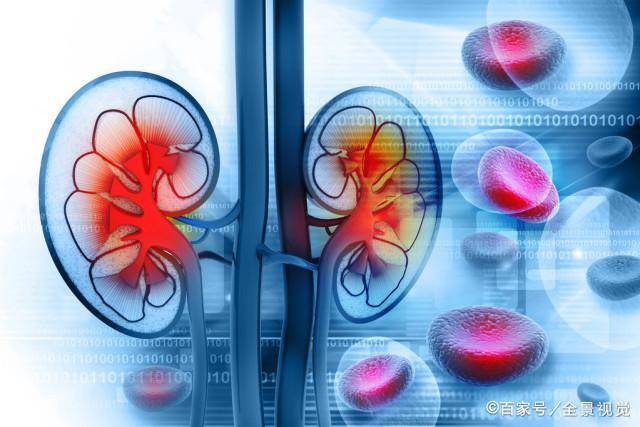The kidney is a human urinary organ located on both sides of the lower back; the kidney has a filtering function. The body’s blood is filtered through the glomeruli of the kidney, removing a large amount of metabolic waste from the body. Therefore, the kidney is also known as the “cleaner” of blood.
Additionally, the kidney also has an absorption function, absorbing the majority of beneficial nutrients and water for reuse in the body. Thus, a strong kidney function can continuously provide the body with nutrients and water, making kidney function an important indicator of overall health.
However, due to various unhealthy habits such as smoking, drinking, staying up late, and excessive indulgence, some men may experience a decline in kidney function, leading to the serious issue of “suboptimal health.” Therefore, it is crucial for men to take care of their kidneys.
Men with poor kidney function should control their water intake.
For men with strong kidney function, drinking water can enhance blood circulation, facilitate detoxification through increased urine production, and purify the body. Yet, for those with poor kidney function, excessive water consumption can burden the kidneys’ metabolism. Especially before sleep, drinking too much water can affect sleep quality and hinder kidney health.
Thus, men with poor kidney function should regulate their water intake, neither consuming too much to overburden kidney metabolism nor too little to impact normal bodily functions. Developing a habit of drinking water frequently throughout the day is recommended. If not thirsty before bedtime, drinking water may be unnecessary. The daily water intake should be kept between 1000-1500 milliliters. Additionally, maintaining a light diet, especially reducing the consumption of high-oil, high-salt, and high-sugar foods, is important as these can affect the body’s water balance.
Men with poor kidney function should avoid three types of fluids:
1. Alcoholic beverages
Beverages like beer, liquor, wine, homemade rice wine, certain spirits, and cocktails contain alcohol and are best avoided by individuals with kidney issues. It is also advisable for healthy individuals to limit alcohol consumption.
Upon entering the body, alcohol concentration in the blood spikes, with only a small portion being exhaled through breath; the rest must be broken down by the liver and eliminated through the kidneys. Thus, abstaining from alcohol is advisable for those with kidney problems.
2. Carbonated drinks
Carbonated beverages contain high levels of carbon dioxide, which, when consumed excessively, can increase the burden on kidney metabolism. Moreover, most carbonated drinks contain high levels of sugar and preservatives, making them unsuitable for regular consumption.
Additionally, beverages like coffee, strong tea, and those high in sugar should be consumed in moderation. The best choice for hydration is warm water, which can be infused with herbal teas like medlar, preferably without added sugar.
3. Strong meat broth
Broths made from meat or bones, simmered for extended periods, are rich in nutrients but also contain high levels of purines and cholesterol. Purines metabolize into uric acid, which must be excreted through urine. If there are issues with kidney metabolism, leading to high blood uric acid levels, uric acid crystals may form, posing health risks to the kidneys and joints.
Therefore, individuals with poor kidney function or high uric acid levels should avoid consuming heavily concentrated meat broths and exercise control over meat consumption. A diet emphasizing light, fresh vegetables over salted pickles, cured meats, sausages, and other processed foods is advised. Excessive protein intake is also not recommended.
Individuals with poor kidney function should adhere to the following to improve kidney health:
Maintain regular physical exercise
Exercise not only strengthens the body and bones but also promotes blood circulation, enhances metabolic functions, and facilitates kidney function repair. Exercising should be moderate and controlled to prevent overexertion. Consistent exercise routine contributes significantly to overall health.
Ensure quality sleep
During deep sleep at night, when the body’s metabolism slows down, kidney repair processes begin. Hence, high-quality sleep is essential for kidney health.
Studies show that the period between 9-10 pm is ideal for initiating sleep to achieve deep sleep. For individuals with poor kidney function, it’s advisable not to miss this “golden sleep period” to aid kidney health by avoiding staying up late (sleeping after 11 pm is considered late).
Before bedtime, activities like foot soaking, warm baths, massages, minimizing screen time, listening to relaxing music, drinking warm milk can help relax and promote good sleep habits.
Avoid excessive physical fatigue
During fatigue, the body produces more metabolic waste, further burdening the kidneys. Therefore, managing workload to prevent exhaustion, maintaining a balance between work and rest, fostering a positive mindset to avoid mental fatigue, and avoiding excessive sexual activity are crucial.
Generally, in non-disease situations, it’s advisable to avoid relying on medications, unknown health supplements, or unverified remedies, to prevent exacerbating kidney metabolism burden. Instead, adopting healthy lifestyle habits gradually adjust and improve kidney health. However, in the case of diseases, seeking treatment from reputable healthcare facilities promptly is crucial to prevent further complications.


